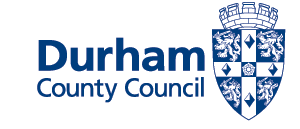15 hours funded childcare for three and four year olds
15 hours funded childcare is available for all children from the school term after their third birthday, until they start school.
Children can attend on a part-time basis for 15 hours a week, for 38 weeks of the year (term-time). This equals 570 hours and can be taken as follows:
- Flexibly over a minimum of two days per week (no more than ten hours per day).
- Shared between two childcare providers.
- Stretched over more than 38 weeks (up to 52 weeks) - using less hours per week.
Speak to your childcare provider about how they are able to offer their funded sessions.
When your child can start
Your child is entitled to this childcare, from the start of the term following their 3rd birthday until they start school.
| Child's third birthday | Your child's place will begin |
|---|---|
| September - December | January |
| January - March | April |
| April - August | September |
Who provides this childcare
- nurseries
- childminders
- schools
Visit Families Information Service: childcare, and filter on 'Free 3/4 yr places' to find a provider near you.
How to apply
If you are already using childcare, speak to them directly to apply. If you are not using childcare (or you wish to change), contact the nursery, pre-school playgroup or childminder that you'd like to use to:
- check if they have spaces
- see how flexible they are with the 15 funded hours
What you can and cannot be charged for when using funded childcare
The DfE state that all parents who are eligible should be able to access a funded childcare place, which must be delivered completely free of charge. This is set out in paragraph A1.30 of the current statutory guidance and A1.33 of the updated statutory guidance applicable from 1 April 2024.
What is allowed - consumables and additions:
- Government funding is intended to deliver 15 or 30 hours a week of free, high quality, flexible childcare. It is not intended to cover the costs of meals, other consumables, additional hours or additional services. Providers can charge for meals and snacks as part of a free entitlement place and they can also charge for consumables, such as nappies or sun cream, and for additional services such as trips and specialist tuition. (Paragraph A1.30 of the statutory guidance).
- If a parent is unable to pay for consumables, or if a parent wishes to provide their own, then the parent and provider can discuss alternative options. This could include allowing parents to supply their own meals or nappies, or waiving or reducing the cost of meals and snacks.
- Charges for consumables or additional services should not be made a condition of accessing a free place. (As set out in paragraph A1.33 of the guidance.)
What is not allowed:
- Councils should ensure that providers do not charge parents "top-up" fees (any difference between a provider's normal charge to parents and the funding they receive from the council to deliver free places).
- Core costs of running a business that delivers government-funded childcare are not consumables used by the child or additional services provided to the child. These include, but are not limited to, insurance, Ofsted registration, maintenance, business rates, training costs, rent and energy bills. These are core costs of running a business and parents should not be charged.
Please discuss any additional charges with your childcare provider. If you have concerns about your provider's charges, or for further information, please Contact Early years funding.
If you are working and pay tax, you may be able to use Tax-Free Childcare to help you pay for any additional charges.

 Share this page on Facebook
Share this page on Facebook
 Share this page on Twitter
Share this page on Twitter
 Print this page
Print this page





